Upgrade to the latest technology for increased safety and productivity
You don’t always have to buy a new crane to benefit from modern crane technology. Simple upgrades can make a big difference in enhancing your safety and productivity.
LED Lighting
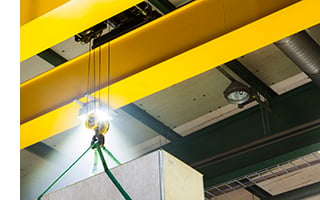 Safety advantage: Because light distribution in LED lights is more focused, the crane operator is less likely to get blinded by the light when looking at the load. Plus, the light is directed where it is needed: on the load and on the workstation or facility.
Safety advantage: Because light distribution in LED lights is more focused, the crane operator is less likely to get blinded by the light when looking at the load. Plus, the light is directed where it is needed: on the load and on the workstation or facility.
Cost savings: LED lights illuminate instantly and don’t need to be changed as often as traditional lighting. They are also far less prone to damage from vibration. Traditional lighting accounts for 50 to 90 percent of electricity used by a crane. LED lights consume little more than one third of the energy of traditional lights letting you cut your energy consumption by up to 60 percent per crane.
Read the expert article: Two cost-effective crane retrofits that really pay off
Radio Controls
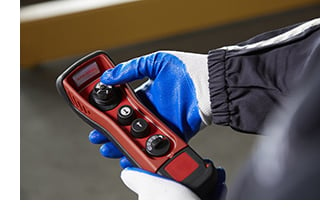 Safety advantage: Replacing pendant controls with radio controls provides free movement for the operator and allows them to choose the safest place to operate the crane and gives them better visibility of the load.
Safety advantage: Replacing pendant controls with radio controls provides free movement for the operator and allows them to choose the safest place to operate the crane and gives them better visibility of the load.
Productivity advantage: Improved user ergonomics reduces strain for the operator helping to increase productivity in your process. Radio controls can also save the operator time eliminating the need to walk from a pendant to the load to rig countless times in a shift.
Read the expert article: Six reasons to switch to radio controls for cranes
Variable Speed Control (VFD)
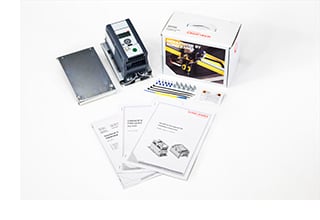 Safety advantage: VFD control offers smoother travelling motion which means better load control compared to motor controls. VFDs also give you smooth programmable acceleration and deceleration rates resulting in easier load positioning.
Safety advantage: VFD control offers smoother travelling motion which means better load control compared to motor controls. VFDs also give you smooth programmable acceleration and deceleration rates resulting in easier load positioning.
Productivity advantage: The precise and infinitely variable speed selection reduces jerking and load swing for enhanced operator efficiency and productivity.
Remote Monitoring
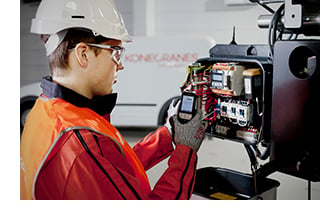 The hardware required for Remote Monitoring can be retrofitted on existing cranes including Konecranes equipment, non-Konecranes brand hoists and Demag hoists and cranes equipped with SafeControl.
The hardware required for Remote Monitoring can be retrofitted on existing cranes including Konecranes equipment, non-Konecranes brand hoists and Demag hoists and cranes equipped with SafeControl.
Safety and productivity advantages: TRUCONNECT Remote Monitoring provides you with crane usage and operating information as well as alerts for brake service life, hoist overloads, emergency-stops and over-temperature occurrences through text or email alerts, allowing for prompt response.
Condition monitoring shows the current condition of crane components, any risks related to safety and production, and the estimated remaining service life based on the usage history. Condition monitoring can also be used to check the component replacement frequency, which provides a clear indication of upcoming maintenance needs and how changes in the operator's actions affect the service life of components. This information can be used to plan and schedule preventive maintenance in order to improve safety and reduce unplanned downtime.
Alerts are categorised into safety-critical and production-critical alerts. Safety-critical alerts indicate a safety risk to the crane or its operation. Safety-critical risks can include emergency stops, overloading and brake faults. Production-critical alerts indicate production risks that result in crane stoppage or production downtime. Production-critical risks can include motor overheating, inverter faults and control system faults.
Operating Statistics show how different crane operating patterns affect the safe operation and condition of the crane and the service life of critical components. Operating patterns can significantly influence the service life and safety of individual components. This information can be used to promote appropriate operation in order to achieve optimal results in terms of the safety, service life and maintenance costs of the crane investment.
Read the expert article: Remote Monitoring changes everything
Side Pull Prevention
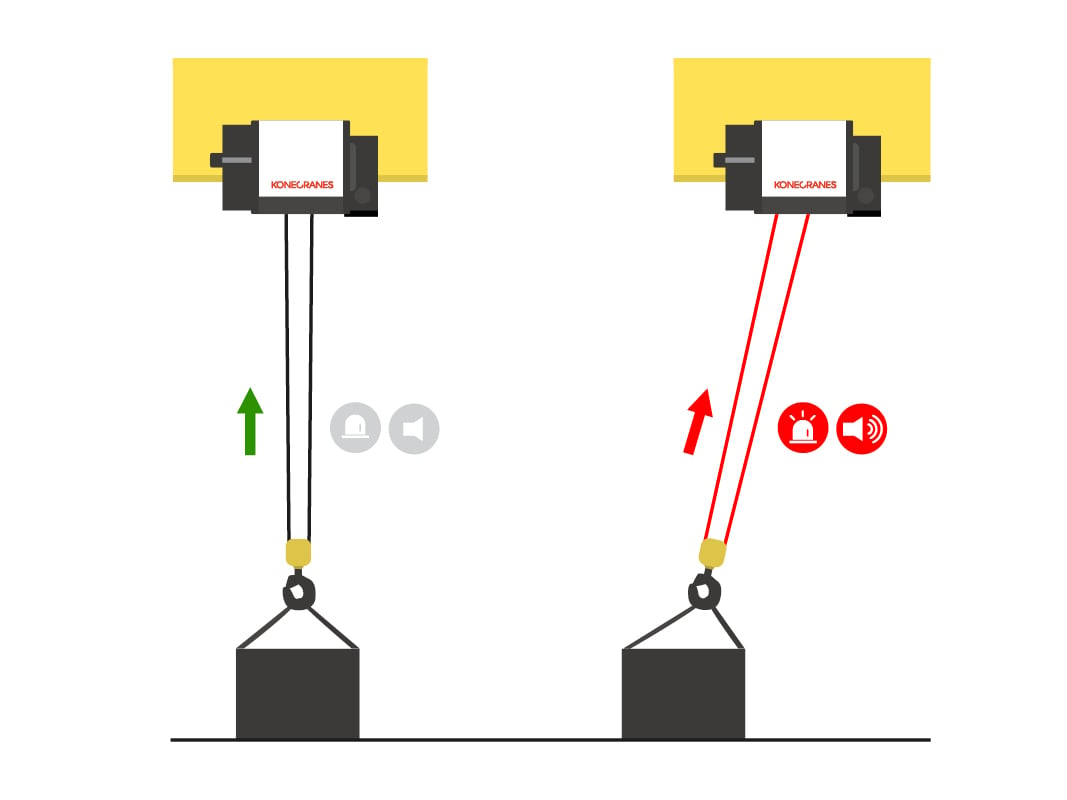 Safety advantage: Side Pull Prevention has been designed to stop hoisting motion when side pulling is detected. A side pull occurs when the hoist lifts something that has not been placed directly beneath it. Side pull can cause hazardous load swing and in the worst case – load drops.
Safety advantage: Side Pull Prevention has been designed to stop hoisting motion when side pulling is detected. A side pull occurs when the hoist lifts something that has not been placed directly beneath it. Side pull can cause hazardous load swing and in the worst case – load drops.
Productivity advantage: Side pull can also cause damage to the drum, rope and rope guides and is a common cause of breakdowns.
Read the expert article: How to prevent side pulling on cranes and hoists

 Safety advantage: Because light distribution in LED lights is more focused, the crane operator is less likely to get blinded by the light when looking at the load. Plus, the light is directed where it is needed: on the load and on the workstation or facility.
Safety advantage: Because light distribution in LED lights is more focused, the crane operator is less likely to get blinded by the light when looking at the load. Plus, the light is directed where it is needed: on the load and on the workstation or facility.  Safety advantage: Replacing pendant controls with radio controls provides free movement for the operator and allows them to choose the safest place to operate the crane and gives them better visibility of the load.
Safety advantage: Replacing pendant controls with radio controls provides free movement for the operator and allows them to choose the safest place to operate the crane and gives them better visibility of the load.  Safety advantage: VFD control offers smoother travelling motion which means better load control compared to motor controls. VFDs also give you smooth programmable acceleration and deceleration rates resulting in easier load positioning.
Safety advantage: VFD control offers smoother travelling motion which means better load control compared to motor controls. VFDs also give you smooth programmable acceleration and deceleration rates resulting in easier load positioning. The hardware required for Remote Monitoring can be retrofitted on existing cranes including Konecranes equipment, non-Konecranes brand hoists and Demag hoists and cranes equipped with SafeControl.
The hardware required for Remote Monitoring can be retrofitted on existing cranes including Konecranes equipment, non-Konecranes brand hoists and Demag hoists and cranes equipped with SafeControl.  Safety advantage: Side Pull Prevention has been designed to stop hoisting motion when side pulling is detected. A side pull occurs when the hoist lifts something that has not been placed directly beneath it. Side pull can cause hazardous load swing and in the worst case – load drops.
Safety advantage: Side Pull Prevention has been designed to stop hoisting motion when side pulling is detected. A side pull occurs when the hoist lifts something that has not been placed directly beneath it. Side pull can cause hazardous load swing and in the worst case – load drops.